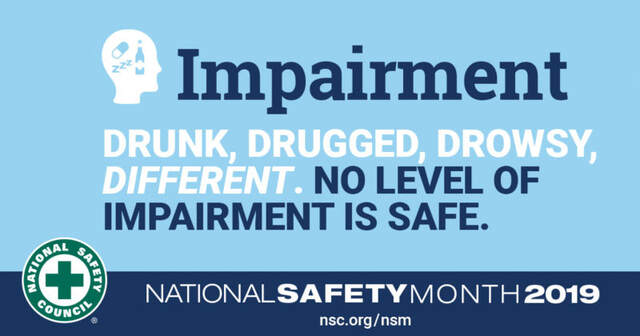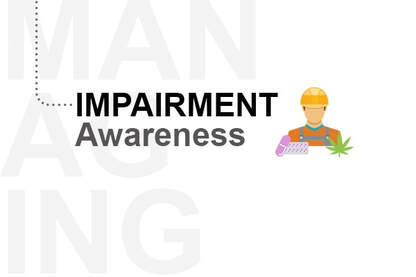|
Impairment in the workplace is probably one of the trickiest safety issues faced by employers today. Sure it’s super easy to tell if someone is obviously drunk or high, but what do you do about it? And what about those that you just suspect may be impaired in some way but you can’t be absolutely sure? There are many kinds of impairment from sleep deprivation to mental illness to chemical abuse. Let’s focus on the most detrimental and potentially costly – chemical dependency and abuse. Most companies have some kind of policy that they can refer to for corrective actions, but does that really help the person or the company? Or is it just designed for procedure and discipline? The problem
Signs of impairment
Physical signs:
Psychosocial signs:
Performance signs:
We’re not saying these are all signs of only a chemical dependency problem. They could be signs of a major change in their home life or signs of a psychological issue manifesting itself. Either way, they are definite red flags to pay attention too. Especially if they are exhibited by a one-time good or great employee. As employers, it’s our responsibility to maintain a safe and productive workplace for everyone. Being aware of changes like these in employees allows you to discover and address any issues that your employee is experiencing and possibly save someone from causing an accident, losing their job, losing their family, or even losing their life. What can we do?
As employers and management we can:
There’s no easy answer to this health crisis. All we can do is keep our eyes and ears open, learn to spot early warning signs and learn how to appropriately deal with the issue when it crosses our path. As always we hope that we have provided some useful information and sources. Comments are closed.
|
AuthorVarious. Categories
All
Archives
August 2023
|
- Home
- About
- Career Opportunities
- Services
-
Equipment
- Dock Locks (Truck Restraints) >
- Fans & In-Plant Equipment >
-
Industrial / Commercial Doors
>
- High Speed Fabric Doors
- Security High Speed
- Rubber Doors
- Fire Door
- Rolling Steel
- Impactable Dock Doors
- Cooler / Freezer
- Fabric Roll-Up
- Impact / Traffic / Bump
- Overhead / Sectional Doors
- Operators / Activation
- Air Curtains / Screen & Bug Doors
- Strip Doors
- Door Entrapment Protection
- Door Protection
- Overhead Door Upgrades
- Loading Dock Levelers & Lifts >
- Loading Dock Seals & Shelters >
- OEM & Aftermarket Parts
- Safety / Energy / Security / Employee Comfort >
- Yeti Snow Removal
- Markets
- Blog
- Contact
Dock & Door Tec
Serving Minnesota, Wisconsin, Iowa, North Dakota & South Dakota
Serving Minnesota, Wisconsin, Iowa, North Dakota & South Dakota





 RSS Feed
RSS Feed
